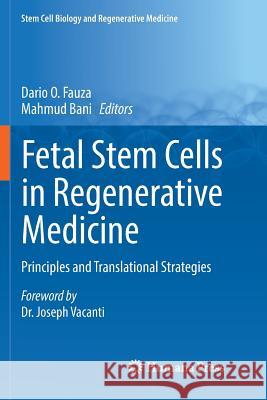Fetal Stem Cells in Regenerative Medicine: Principles and Translational Strategies » książka
topmenu
Fetal Stem Cells in Regenerative Medicine: Principles and Translational Strategies
ISBN-13: 9781493980604 / Angielski / Miękka / 2018 / 453 str.
Kategorie:
Kategorie BISAC:
Wydawca:
Springer
Seria wydawnicza:
Język:
Angielski
ISBN-13:
9781493980604
Rok wydania:
2018
Wydanie:
Softcover Repri
Ilość stron:
453
Waga:
0.66 kg
Wymiary:
23.39 x 15.6 x 2.44
Oprawa:
Miękka
Wolumenów:
01
Dodatkowe informacje:
Wydanie ilustrowane











